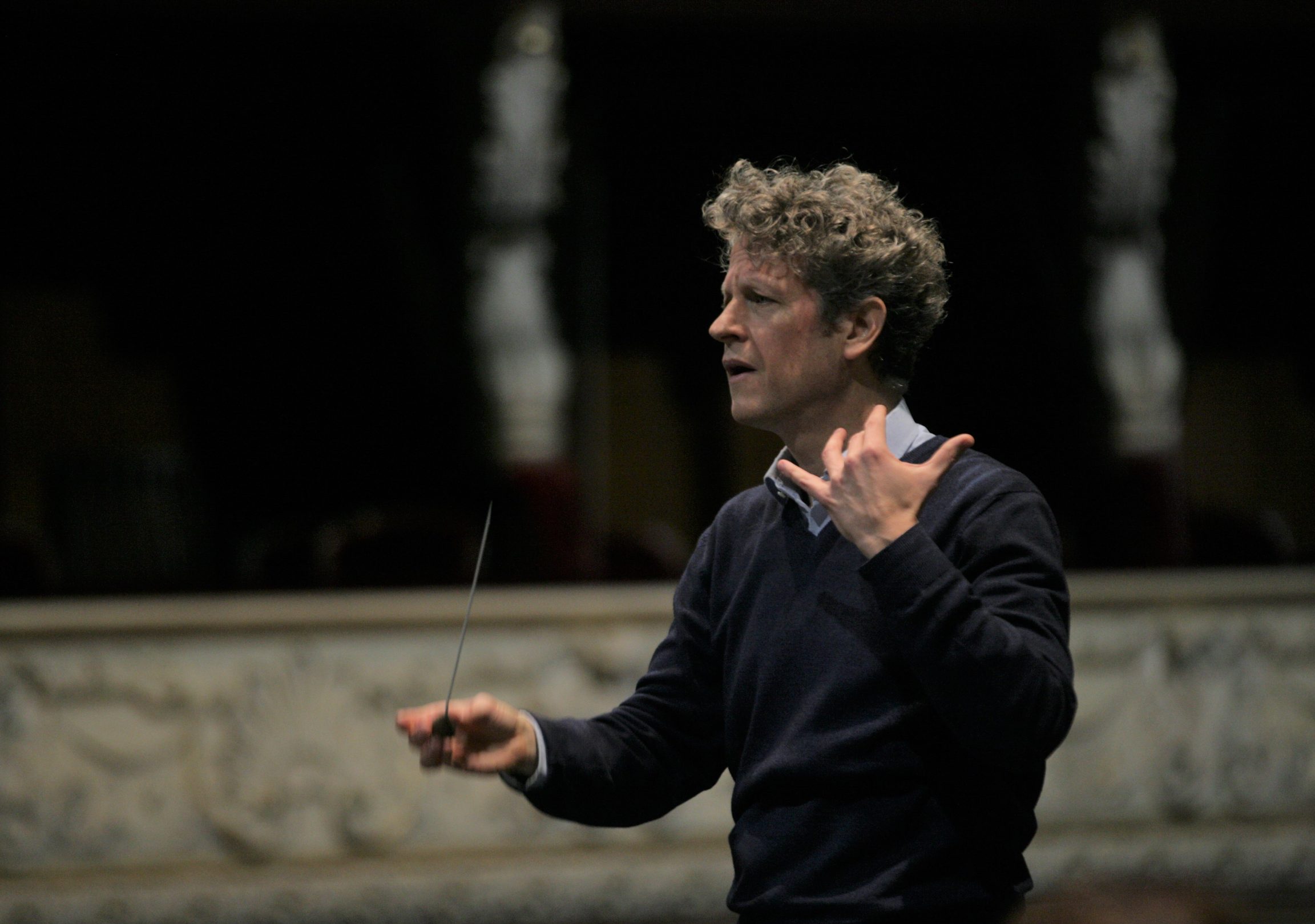On Saturday, November 30 at 7:30 PM, the program features Requiem, with the unique story of the musical genius Wolfgang Amadeus Mozart, who, without completing the work, died at the age of 35 over precisely that score, in the middle of writing the last notes of the famous, beautiful and moving Lacrimosa. The Rijeka Symphony Orchestra, Rijeka Opera Choir and soloists Marija Kuhar Šoša, Ivana Srbljan, Domagoj Dorotić and Slavko Sekulić will provide a unique experience of this magnificent work, all under the direction of maestro Philipp von Steinaecker, our chief guest conductor. It is he who answers questions for our audience about Mozart, about the shocking Requiem, about his love of music, conducting, cello, about friendships…
Exactly four years ago with Mozart’s Requiem in 2017, the audience, orchestra and soloists here had their very first chance to enjoy your conducting. How do you remember that night, as well as the rehearsals and your impression after the concert?
I had never been to Rijeka or to Croatia and it was a great discovery to come here. I remember being stunned by the view from the hotel over the sea the first morning, by the beautiful theatre and… the calamari. 🙂
Everyone seemed very friendly and I think we enjoyed working together. The audience was very friendly and I remember I was wearing a new tuxedo for the first time, which is always a bit stiffening.
I also made new friends here that first visit. I was impressed by their generosity and warmth, by the reality of their lives (one of the great things about travelling is seeing others’ daily lives) and have cherished their company ever since!
Why is Mozart’s Requiem mass so unique and awe-inspiring?
Mozart wrote a lot of church music as a young man during his Salzburg years. He was intimately familiar with the genre, and some of his best earlier music was written for liturgical purposes. However, after he left Vienna he revisited the the genre only twice. Once with his C Minor Mass written just after arriving in Vienna and then with the Requiem.
Both pieces are amongst his best and are certainly towering masterpieces, almost unsurpassable in the realm of liturgical music. Interestingly, both of them are unfinished.
There are different intriguing questions about the story of this fascinating music, but what you believe about Mozart’s Requiem?
Do you mean the myths about Mozart being poisoned and Salieri trying to kill Mozart with too much work, etc.?
Look, none of these stories are true; they are figments of 19th century romantic imagination.
My personal feelings during the requiem revolve around a young life tragically cut short. About the fact that we are all surrounded by death in the midst of life and few of us are ready to face that fact. That moment in the Lacrimosa where the composition breaks off gets me every time, and in that sense I find the Requiem frustrating because whenever Süssmayer takes over the difference is so obvious and the loss of the genius so painful.
How does the music constitute the powerful final testament of this genius?
I think it is striking how compact the Requiem is, how concise the ideas are, how inventive, insightful and overflowing with dramatic and poetic instinct this score is.
It’s Mozart at the top of his game. And that says something…
How is it possible that we can still connect so much with everything Mozart wrote 230 years ago?
Obviously the musical invention is sublime, but Mozart also understands his subject so deeply and so empathically that any person on this planet at any time can understand what he is trying to say. His answers to our human sufferings are so unique, so subtle and often surprising that they don’t cease to fascinate. That is coupled with a deep sense of timing, drama and humour and all of his scores are brimming with intelligence and humanity…
What’s your favourite Mozart’s composition to listen, and what to conduct?
It’s probably the C Minor Mass, but also Figaro and the Magic Flute. I have listened to this music for a sizeable part of my life and have conducted all of these pieces often. I know I will never tire of them.
What is your favourite period?
Impossible to decide. That would be so limiting.
What do your preparations for conducting any musical piece look like?
Read the score. Understand the biographical context. Understand the historical background. Understand the stylistic requirements, Understand how they apply to the piece. Understand what’s on the page, why it’s there and what makes it great. Try to know the piece insight out.
After you have conducted numerous orchestras, how is it to be one of the musicians and play cello? 🙂
It’s just so different and there is no way to compare the two experiences even if it is the same piece.
However, it is important to me to keep playing the cello. These days I don’t find as much time for it as I’d like, but I make a point to do some projects as a cellist every year. My friends in the Mahler Chamber Orchestra are outstanding musicians and it is inspiring to make music with them and great to spend time with them. It’s also important to me to be working on the highest level and with the best conductors in the world to remind myself what I am striving for musically. Of course it’s so much fun when from time to time they ask me to conduct them…
What do you prefer, concerts or operas?
Really depends of the performance! But opera was my first love.
Feel free to invite the audience to the special Saturday evening with Mozart’s Requiem.
Come and join us for a performance of Mozart’s Requiem at a time of the year when we remember and mourn our dead. Experience how Mozart trembles and tries to soothe himself in the face of death, and feel devastated with us when we realise in the middle of the work that he had to make that hardest of journeys while he was still grappling with it all. It is a Requiem written by a young man who is not ready to die. What could be more moving, more tragic and more realistic. Experiencing this music together with others is so special and will never compare to listening to a recording no matter how glorious the cast. The shared experience gives us sense as a society and is deeply comforting. Unsettling as the piece might be.


